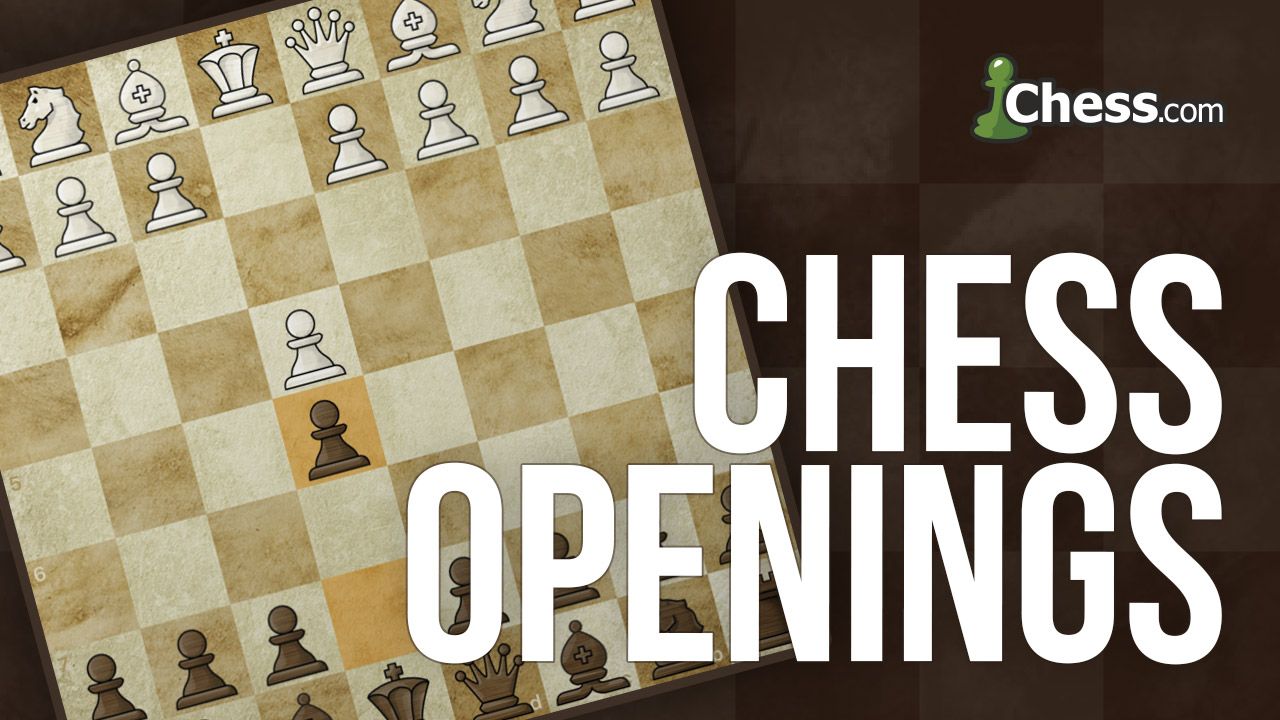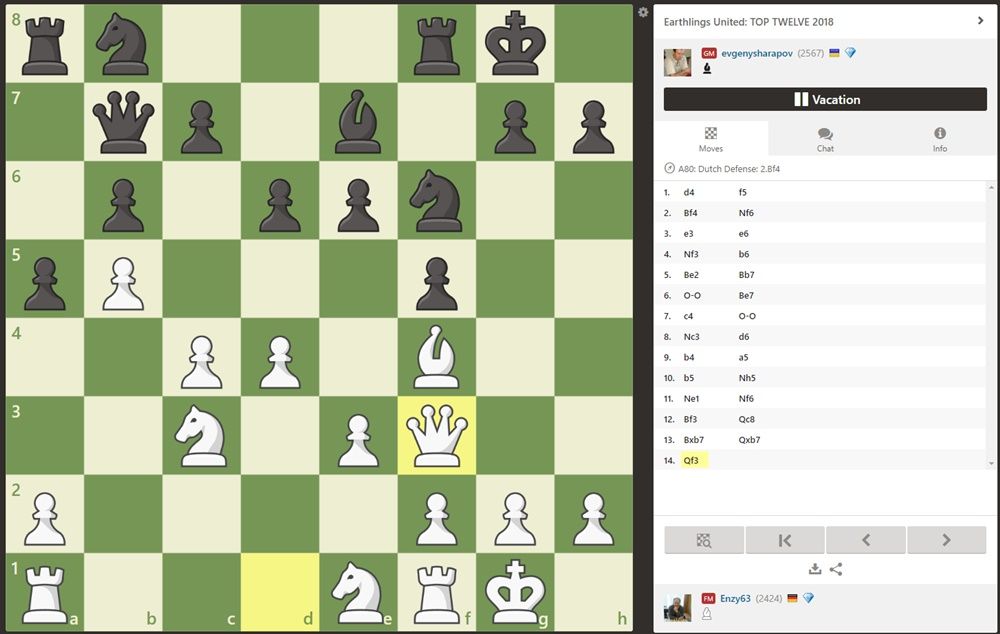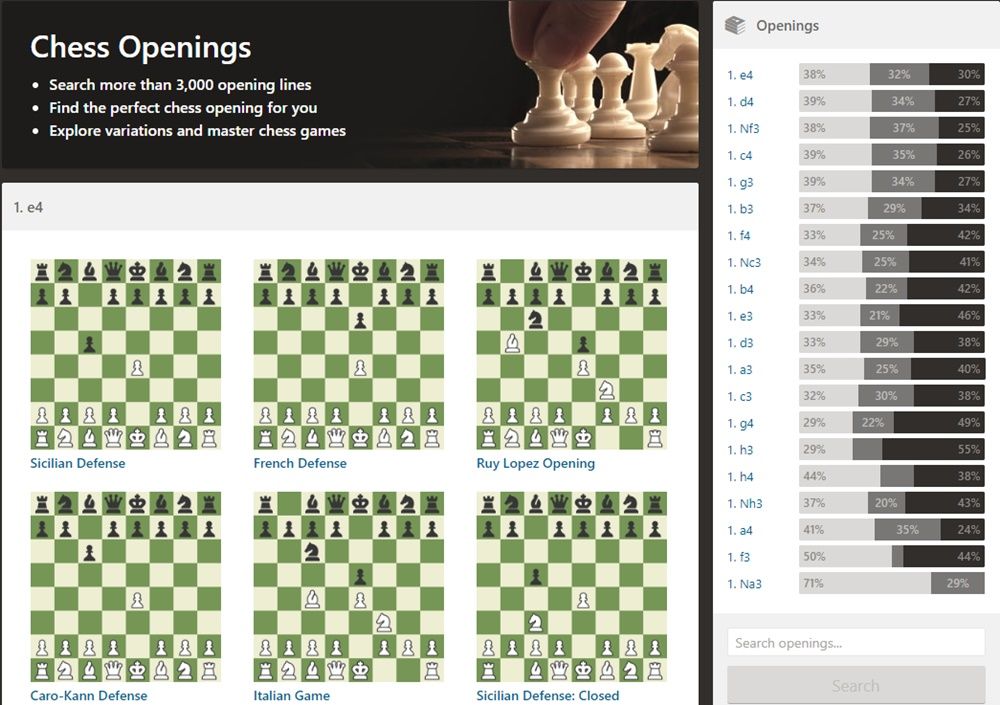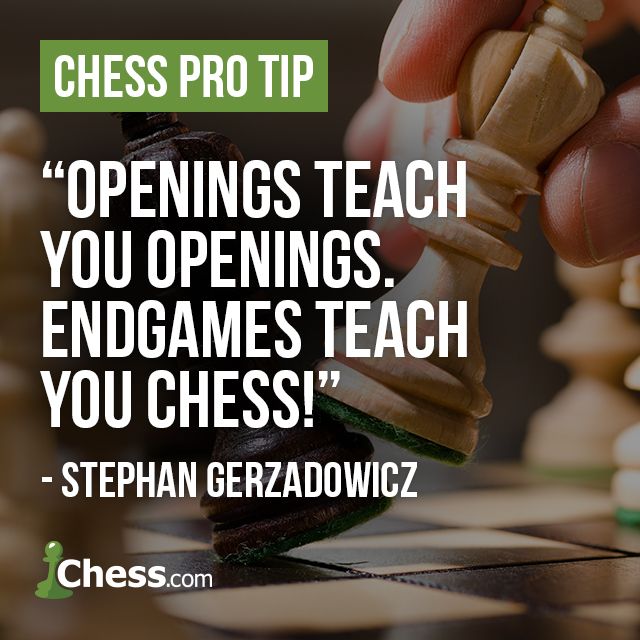
Chess For Beginners | Study Plan: The Opening
Every master was once a beginner. That is why Grandmaster Sam Shankland has prepared this detailed guide to help you make your first steps in the chess world. Check out the steps and resources and start your path to mastery.
- Target Skill Range: Beginner (Rated 1000-1399)
- Goal: Acquire the knowledge to approach the opening with confidence and achieve success!
Tasks:
- Memorize the principles of the opening.
- Apply the principles in practice games.
- Learn a few "tournament" chess openings.
- Watch these video lessons for practical review.
- Read these articles for practical review.
- Play in an opening themed tournament on Chess.com.
- Complete an opening lesson.
- Take the quiz!
Every chess player takes their "first steps" in the opening stage. Here's what we recommend to get confident and put your best foot forward in every game:
1. Memorize the principles of the opening
Every chess player must understand these key ideas before being able to play a decent opening.

Even without knowing any theory or specific opening variations, following the principles and guidelines found below will have good results in most amateur games.
Read this: The Principles Of The Opening: For Beginners!
Watch this: Opening Principles
2. Apply the principles in practice games
At this point a player should start playing games, always evaluating their play after move 10 and asking themselves whether or not they have followed the principles in the article from Task #1. Games should be played as often as possible. We believe that at least 100 practical games (either e-chess or live chess)—taking the time to make an evaluation as to whether or not you followed the "rules" of the opening after move 10—will be required to reach the 1400 level; however, a player should continue this practice until 1400 is reached, no matter how many games it takes.
Get started now!

Select your preferred time control and... → Start a Live Chess game
or if you prefer some slower time controls...

Choose from 1 day to 14 days per move and → Start your Daily Chess Game
3. Learn a few "tournament" chess openings
Experienced chess players tend to play a specific set of prepared openings. Though this list expands as a chess player improves, it isn't necessary to know every opening line at the start. For now, understanding a select few openings (or at least knowing enough to recognize them in your own games) is good enough!
Every competitive chess-player will eventually choose an "opening repertoire", but before that, every chess-player should know the following openings by sight. It isn't critical at this time to worry which variations/moves you choose once you follow the links below; simply explore & enjoy reviewing a few games by master players of the past:

With the Openings Trainer you can search more than 3.000 opening lines and build your repertoire.
Use the Game Explorer to review 5 games and memorize the first 5 moves in these openings:
- The Ruy Lopez or Spanish Game
- The Giuoco Piano or Italian Game
- The Four Knights Opening
- The Two Knights or "Fried Liver"
- The Queen's Gambit Accepted
- The Queen's Gambit Declined
- The Queen's Gambit Declined: Slav and/or Semi-Slav
4. Watch these video lessons for practical review
Enjoy these video lessons, all of which contain vital principles and good lessons about the opening.

Despite openings are important, do not forget to prepare your endgame skills.
Take notes, and perhaps watch your favorites more than once to ensure you absorb the ideas!
- Everything You Need to Know: The Opening! by IM Daniel Rensch
- Every Chess Opening: The First Move! by IM David Pruess
- Development Part 1: Counting by IM David Pruess
- Development Part 2: Open vs Closed Positions by IM David Pruess
- Development Part 3: Fluid Positions by IM David Pruess
- Opening Principles Explained by FM Charles Galofre
- The Four Knights Opening: Intro! by GM Roman Dzindzichashvili
- Easy and Ambitious System vs the French by GM Roman Dzindzichashvili
- Member Analysis: Making Opening Decisions by GM Roman Dzindzichashvili
- The Petroff Defense by FM Tiger Lilov
5. Read these articles for practical review
Grandmaster Gregory Serper's column is full of sound opening advice & instructive games.

We have selected a few that we felt were most appropriate for players of this level. Read these six articles like they were a personal assignment from Gregory himself to further solidify your new-found opening knowledge!
- Monkey See, Monkey Do
- An Important Lesson from My Youth
- The Good, the Bad, and the Ugly - Part 2
- Typical Patterns Everyone Should Know - Part 6
- Typical Patterns Everyone Should Know: The Quickest Way to Lose a Game
- How to Lose a Game in 10 Moves or Less - Part 2
6. Play in an opening themed tournament on Chess.com
Chess.com has tournaments starting and ending every day. Go to the Tournaments Page, select the "thematic" top-filter and find an upcoming tournament created/themed for the practice of a particular opening and join it. (These are often called "thematic" tournaments.) You will be given a position to play against the other competitors, and you will get to experience the opening from both sides of the board, playing white and black.

Are you ready for the "thematic" challenge? → Join a Tournament Now!
The main lesson here will be seeing how other, most likely more experienced, players in your event approach the given position. You will see that every opening has a specific pawn structure, certain tactical themes that occur often within the positions, and other strategical ideas specific to that opening. Learn to develop plans, not just pieces!
7. Complete an opening lesson
Chess.com has many lessons on the opening; however, we have selected this specific course for learners at your level. If you can complete this course and score over 70%, you should be playing the opening stage at a 1400 level or higher.

Improve your chess with these Lessons → Exploiting Typical Opening Errors
BONUS MATERIAL: Do you still want more tips for beginners? Check out this video with the top-5 chess tips from world champion Magnus Carlsen.
Test your new skills.
This final section contains questions a player should be able to answer after completing this study plan!
Question 1
At what move did IM Daniel Rensch say a player should be able to castle by, even though the rule says move 10, in the Principles of the Opening -- for Beginners article?
Question 2
What "little thing" did GM Gregory Serper say would help a player to avoid many opening disasters, that he then went on to talk about in the article "An Important Lesson from My Youth"?
Question 3
In his example from the Sveshnikov opening, before he talks about the "quality" of development who does IM David Pruess say is leading in development in this video? White, black or equal?
Question 4
What does IM Daniel Rensch say is a "key" or "secret" to planning at the master levels of chess in the Principles of the Opening -- for Beginners article?
Question 5
What move did Petrosian play on move eight against Hans Ree to force resignation in GM Gregory Serper's "How to Lose a Game in 10 Moves or Less Part 2" article?
Answers:
- 1. move 7
- 2. "common sense"
- 3. equal. The development itself was equal based on David's principles of purely counting
- 4. the pawns
- 5. 8.Qb3!






